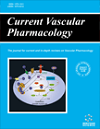
Full text loading...
To describe clinical factors predictive of warfarin response in atrial fibrillation (AF) patients and to evaluate its association with adverse outcomes.
Patients in the Middle Eastern JoFib study, a prospective, multicenter registry of AF patients, using warfarin with at least one international normalized ratio (INR) reading, were enrolled. We used the most recent INR as a measure of warfarin control.
Out of the total 2020 patients, 544 (26.9%) were using warfarin. Multivariable logistic regression analysis demonstrated that heart failure (adjusted OR 0.55, 95%CI 0.36-0.86) and increasing HAS-BLED score (adjusted OR 0.73, 95%CI 0.58-0.92) decreased the odds of having a therapeutic INR. Chronic kidney disease (adjusted OR 3.11, 95%CI 1.46-6.62), heart failure (adjusted OR 2.37, 95%CI 1.4-4.01), and cancer (adjusted OR 2.48, 95%CI 1.03-6.01) were independently predictive of having INR less than 2.0. The first episode of AF was independently predictive of having INR above 3.0 (adjusted OR 2.48, 95%CI 1.39-4.42). Multivariable Cox regression analysis demonstrated that INR below the therapeutic range (aHR 4.36, 95%CI 2.19-8.68) and INR above the therapeutic range (aHR 3.03, 95%CI 1.33-6.92) were predictive of all-cause mortality. Below-range INR also predicted cardiovascular mortality (aHR 3.69, 95%CI 1.66-8.16).
Clinical factors predictive of sub-optimal INR in Middle Eastern AF patients using warfarin include chronic kidney disease, heart failure, cancer, high HAS-BLED score, and first episode of AF. Furthermore, sub-optimal INR is predictive of all-cause and cardiovascular mortality.

Article metrics loading...

Full text loading...
References


Data & Media loading...

